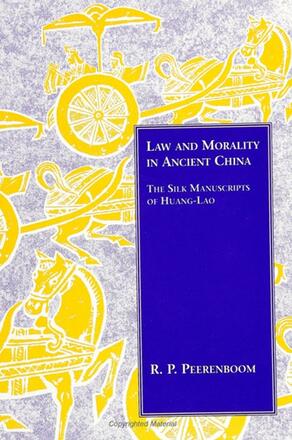
Law and Morality in Ancient China
The Silk Manuscripts of Huang-Lao
Alternative formats available from:
Description
Huang-Lao thought, a unique and sophisticated political philosophy which combines elements of Daoism and Legalism, dominated the intellectual life of late Warring States and Early Han China, providing the ideological foundation for post-Qin reforms. In the absence of extant texts, however, scholars of classical Chinese philosophy remained in the dark about this important school for over 2000 years. Finally, in 1973, archaeologists unearthed four ancient silk scrolls: the Silk Manuscripts of Huang-Lao. This work is the first detailed, book-length treatment in English of these lost treasures.
Reviews
"The main contributions of this work are threefold. First, making use of the recently discovered Mawangdui silk manuscripts, Peerenboom provides a thorough-going and persuasive account of the philosophical and political import of the previously undocumented Huang-Lao school. His is the first detailed treatment of this material in English.
"Secondly, the author uses the new material to reexamine classical schools of Chinese thought and to clarify relations between them. By taking account of advances in contemporary Anglo-American jurisprudence, Peerenboom is able to provide a coherent analysis of the shortcomings and doctrinal disputes of the various schools which led to the development and dominance of Huang-Lao in the late Warring States and early Han.
"Thirdly, Peerenboom addresses the pressing need to give classical Chinese jurisprudence the attention due to it. Focusing on the differences in pre-Qin legal philosophies not only calls attention to the richness of classical jurisprudence but allows Peerenboom to offer revisions to the standard readings of Confucius, Lao Zi, Zhuang Zi and Han Fei. " — Angus Graham